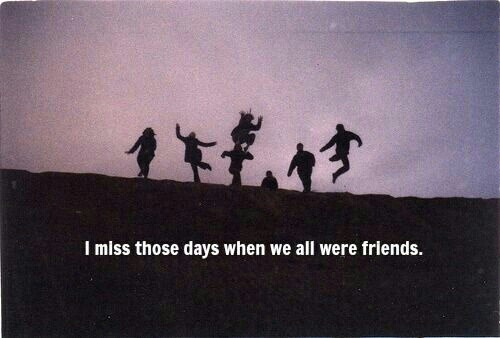Katherine Frances's Blog, page 186
August 4, 2017
creativehoarders:
Ischia, Italy
m-l-rio:
interloper (n.)a person who interferes or meddles in the affairs of othersa person who...
interloper (n.)a person who interferes or meddles in the affairs of othersa person who intrudes into a region, field, or trade without a proper license
August 3, 2017
Character Bootcamp Prompt #28: Where was your character’s favorite place as a child? What was it like? Why did they love it?
We encourage you to use these prompts to develop aspects of your characters that you may not have previously considered. You may consider them on your own, reblog them with commentary, or even send us asks about your thoughts - we’d love to hear what you’re working on!
simplyoriginalcharacters:
One of the most important skills in...

One of the most important skills in any writer’s toolbox is description. It can be very difficult for some people to go beyond eye and hair color when describing a character, but fortunately, this is a skill that can be built up with practice, and that’s where this little daily picture prompt comes in.
Each day in July, for our Character Bootcamp, we’ll be sharing a portrait of a human being (selected from an assortment of free stock portraits found online). We’ve made an effort to choose people of a variety of backgrounds, with diverse skin tones, facial features, expressions, ages, etc.
What we would like you to do with these images is describe the person in them as if they were a character in your story. You can do this any way you please, and focus on whatever you’d like. Reblog the image you’re describing and add your caption so that we can see it, and so that other followers can check the notes and compare their own descriptions with yours. This way, everyone gets a chance to see how different writers handle description, and we can all learn from each other!
And, for the sake of everyone, please remember: these are images of real human beings. They may never see your description, but that’s no reason not to be respectful. We can’t force you to do anything, but we request that you keep your descriptions clean and use only neutral or positive language. You never know who will see them. Thank you for your courtesy!
writing-questions-answered:
Anonymous asked:hey! could you give some examples of too much...
Anonymous asked:hey! could you give some examples of too much narration/dialogue tags vs. too little? I’m struggling to find the happy middle (that rhymed)
Narration isn’t tagged, so I’m not sure what you mean there. :)Tagging is important when it may be unclear who is speaking, such as when there are three or more people in a conversation. However, even when there are two people speaking, it’s sometimes nice to be reminded of who is speaking.
Example of Over Tagging“Stanley is home from work,” Melissa said.
There are straight up name/pronoun tags, like “she said” or “shouted Ted,” and then there are action tags, which illustrate an action taking place before, during, or after the line of dialogue. Action tags are a great way to illustrate who is speaking without using a name/pronoun tag.
Over tagging occurs when you use more tags than are necessary to illustrate who is speaking. Under tagging occurs when it is unclear who is speaking.
Fred slapped his hands together. “Awesome! Maybe he brought pizza.”
“If he didn’t, we can order some.” Melissa searched for the Pizza Hut menu. “Do you know what you would want?” she asked.
Fred took the menu from Melissa. “Hmm… I’m not a fan of pepperoni,” he said with a frown. “Do you like sausage?” he asked.
“I’m okay with either one,” Melissa said with a shrug. “Or we could just get a five cheese pizza.”
Problem: because there are only two people involved in this conversation Fred and Melissa), we can rely somewhat on the “back and forth” of dialogue to know who is speaking. So, it isn’t necessary for every single line of dialogue to be tagged.
Example of Under Tagging
“Stanley is home from work.”
Fred slapped his hands together. “Awesome! Maybe he brought pizza.”
“Oh, let’s hope!”
“If he didn’t, we can order some. Do you know what you would want?”
“Hmm… I’m not a fan of pepperoni,” he said with a frown. “Do you like sausage?” he asked.
“I’m okay with either one,” Melissa said with a shrug. “Or we could just get a five cheese pizza.”
“Let’s wait and see what Stanley wants to do. Maybe he brought some home after all?” said Trevor.Problem: Because there are three people involved in this conversation (Fred, Melissa, and Trevor), it’s completely unclear who is saying what. Who says the first line? Who says the third and fourth line? Who does “he said” refer to?
I hope that clears it up! :)
———————————————————————————–
Have a writing question? I’d love to hear from you! Prohibited questions: howto portray/describe things (characters, emotions, situations), specialist knowledge questions (medical, military, mental health, etc.), asking for tropes/cliches or resources, triggering/controversial topics; broad, vague, or complicated questions. See master list & main site for more info!
–Visceral Definitions by K-frances
August 2, 2017
putthepromptsonpaper:“My name became synonymous with evil. My face became an omen. Who do you become...
:
“My name became synonymous with evil. My face became an omen. Who do you become after that? Who could stay human after that?”









